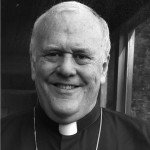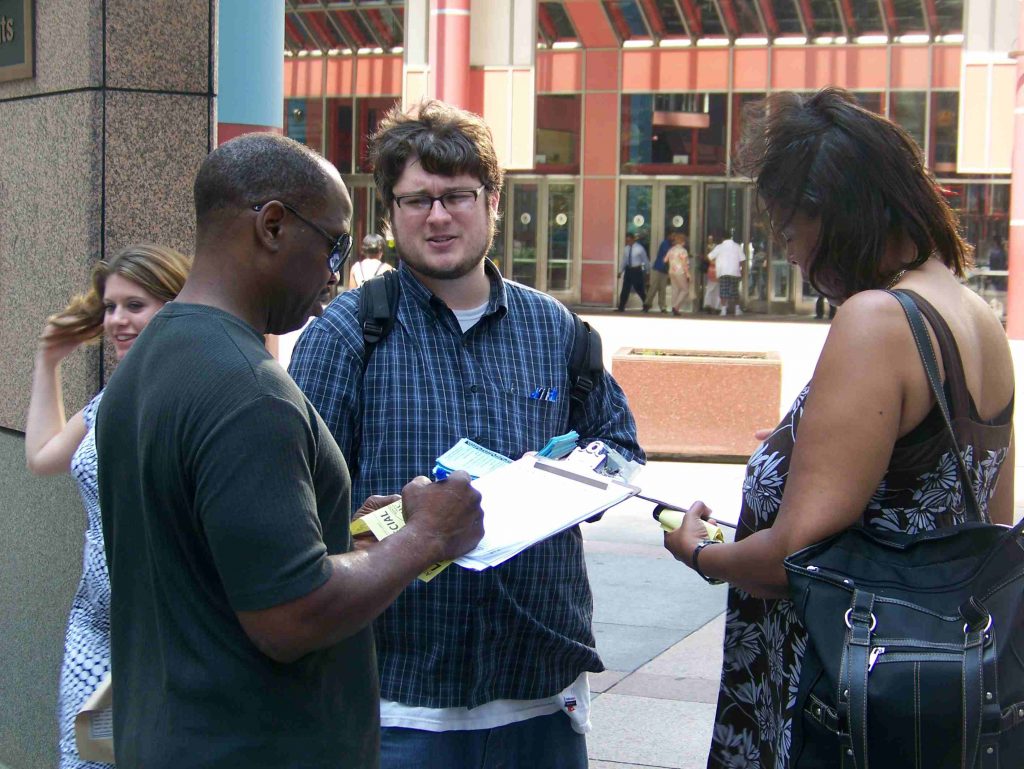GlobalVieiw from Bishop Bill Atwood
The latest province to dive headlong into “Facilitated Conversations” is the Church of England. Stated goals are quite noble: to help those who are on opposite sides of painful issues communicate well. It is certainly true that clear communication is helpful. For many issues, clear communication may allow for a resolution that honors the concerns of all the parties. That, however, is not the case with everything. Take for example the issue of disagreement over the Lordship of Christ. The two different positions – one side confessing that Jesus Christ is Lord of all and the other side believing otherwise – cannot be reconciled.
The German philosopher Hegel, in writing about analytical thought, said that conversations should pose a thesis, engage an antithesis, and then resolve into synthesis. That approach works fine when dealing with matters of opinion or preference, but it is not effective in dealing with issues of truth. For instance, when discussing preferred flavors of ice cream, there’s no “right” answer, and so a synthesis may be effective: if one person likes vanilla and another likes chocolate, a vanilla chocolate swirl might serve as the synthesis. When dealing with matters of ontological truth, however, matters are not quite so flexible: no synthesis or compromise can be made regarding the type of fuel to put in an airplane; similarly, the size of wire required to carry a given electrical current cannot be compromised. When it comes to morality and living ethically, while there is room for kindness in the language we use, there is no room for compromise with what God has revealed in Scripture. Also it’s important to note that it is not simply a system of right and wrong that God set up; rather, it is also the way things actually work best.
Those of us who live in North America and have been in discussions with “progressives” understand well that the “facilitated conversations” have simply been programs of manipulation to advance the liberal agenda. In the church in North America, the liberals have not allowed any advance of the historic difficult positions to stand. I suppose those in other provinces will have to learn this painful lesson for themselves, namely, that the people designing the conversation also process the outcome. Here in North America, we have watched a downward spiral, as received typical values have moved from being the mainstream norm to being an oddity and then finally to being considered hateful. I expect nothing less from the conversations in the UK.
This latest round of “facilitated conversations” in the Church of England on human sexuality may have allowed some people to communicate without shouting or name-calling, but the truth is that a synthesis of the two views cannot be formed. The biblical view of sexual intimacy being reserved for marriage (and that only between one man and one woman in what is intended as a lifelong bond) is incompatible with the view of “whatever feels right for me.” There is no way to weave the two perspectives together and come to a synthesis. There is no way to have fidelity and infidelity at the same time. Of course, in the postmodern world that is precisely what is being suggested. The problem is that it’s simply not possible.
The conversations in the Church of England appear to have gone off fairly gracefully but with little or no substantive solution. The list below identifies the names of people who signed a document saying that there is no room for compromise on the biblical position. They should be commended and should be celebrated as heroes. The truth is they are likely to undergo vilification and rejection.
So Jesus answered and said, “Assuredly, I say to you, there is no one who has left house or brothers or sisters or father or mother or wife or children or lands, for My sake and the gospel’s, who shall not receive a hundredfold now in this time—houses and brothers and sisters and mothers and children and lands, with persecutions—and in the age to come, eternal life. (MARK 10:29-30)
Even so, I can remember the struggle when parishes, buildings, salaries, and retirement were at stake. These members of the Church of England General Synod are to be commended. Let there be festivities in their names! Write doggerels, sing odes, and remember their faithfulness!
Rosemary Lyon – Blackburn
Stephen Boyall – Blackburn
Kathy Playle – Chelmsford
Mary Durlacher – Chelmsford
David Banting – Chelmsford
Debbie Woods – Chester
Jeremy Harris – Chester
Lorna Ashworth – Chichester
Andrea Minichiello Williams – Chichester
Rachel Bell – Derby
Giles Williams – Europe
Helen Lamb – Ely
William Belcher – Gloucester
Chik Kaw Tan – Lichfield
Shaun Morris – Lichfield
Chris Gill – Lichfield
Debbie Buggs – London
Sarah Finch – London
Clive Scowen – London
Charlie Skrine -London
Margaret Parrett – Manchester
Caroline Herbert – Norwich
Graham Caskie – Oxford
Andrew Bell – Oxford
Andrew Presland – Peterborough
Mark Lucas – Peterborough
Ian Dobbie – Rochester
Angus MacLeay – Rochester
Jane Patterson -Sheffield
Brian Wilson – Southwark
Susie Leafe – Truro
Chris Fry – Winchester
These individuals represent just over 30 of the approximately 480 members of the General Synod. It is a minuscule percentage that is reminiscent of the two faithful spies who went into the Promised Land. The faithful were dramatically outvoted. In fact, in Scripture it is almost always the case that the majority votes the wrong way!
This faithful witness is crucial, and it has eternal value. But it also raises another question that is devastatingly poignant for us: “ Why is my name not on the list?” Of course, that is speaking figuratively because I’m not a member of the General Synod and I’m not eligible to put my name on their list, but where are the names of the other 450 members of General Synod who could have signed on? Equally as challenging are other questions: “Is there another list that my name should be on?” “Is there some truth that I need to support?” “Is there a place where I need to take a stand in order to be found faithful?”
Our culture is declining at a rapid pace. Part of the reason is that the witness of the Church has been anemic. There is a cause – a list – that we should support and to which we should affix our names. It is right there in front of us, but many of us have not signed on to the costly course of Discipleship. Many of us have chosen to stay silent and just try to get along. But that is not the course Jesus Christ took. He came among us when, as Paul said, we were still caught in sin and poured out His life while we were yet sinners. It was supremely costly to Him to do that for us, and He did it because He loved us. Out of our love for Him and if we are to be faithful, we must be willing to stand up and be identified with what is right – even when it’s costly.
The “facilitated conversations” of the General Synod are the focus of the week, but there are many other things that are going on in which the followers of Jesus Christ are challenged to be faithful:
Is your name on the list?
Are you willing to be identified with the cause of Christ even when it is costly?



